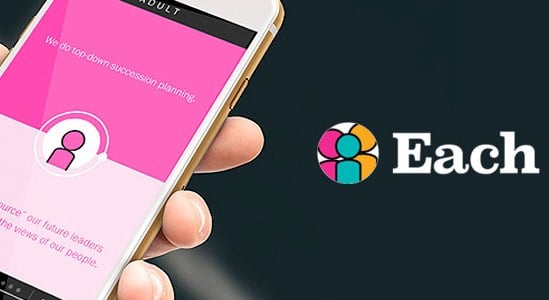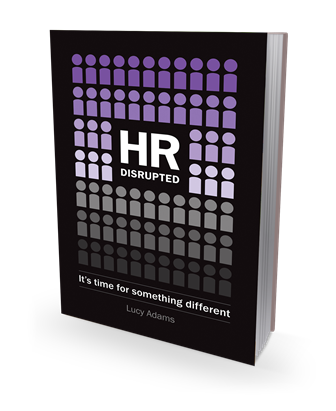I am going to assume that anyone reading this already gets the need for better and different HR practices. I am not going to bang on about the demands of a “VUCA” world, the pace of change, the rise of the Millennials, or a more globalised, networked economy. Any HR professional worth their salt already knows this stuff. They also know that the ONLY means of surviving and thriving in the future is through having great people who can cope with and respond to these challenges. We don’t need to be told this again. We just want some help in knowing what we are going to do about it. The HR professionals I know are typically exhausted from being stretched too thin, are worried about the capability and capacity of their teams to deliver the day job, let alone deliver the future, and are sick of having Google paraded as the only example of HR innovation when they have got only a small fraction of their budget to spend.
HR certainly doesn’t suffer from a lack of advice. There are stacks of academic articles that offer the latest theory and many more blogs that list the 10 ways of doing this, that or the other. We’ve all been to HR conferences where you listen in both awe and disbelief as an HR Director tells you about their latest initiative and how fabulous it all was, when we know that change in HR rarely goes smoothly. How do we filter out the noise and identify what might really make the difference to our businesses in the future? Whilst getting rid of appraisal ratings or investing in the latest HR technology might be fun, it won’t get to the heart of the issue. I have come to believe passionately that changing HR to be fit for the world today is about a fundamental re-think about the relationship between organisations and their people – and therefore, a fundamental re-think about the role of HR.
So, I want to offer up a model for looking at HR afresh that we have developed at Disruptive HR. The EACH© model – Employees as Adults, Consumers and Human Beings.
Over the next three weeks, I’ll consider each one in turn but in this first part of the EACH blog trilogy, I’ll look at why it is so important to treat your employees as adults if you want to cope with a disrupted world.
Traditional employer/employee relationships start with the assumption that employees are like children and need to be either protected or controlled. A few months into my stint as HR Director at the BBC I was told, one snowy afternoon that “It was time to write THE email” by which my team meant the email that told BBC staff that they should think about going home early due to the bad weather. I wondered at the time whether this wasn’t a bit infantilising – but duly sent the email. From our paternalistic benefits schemes, through treats like “dress-down Fridays” to our instructive notices to “wash your hands” when visiting the loos, we too often assume the role of in loco parentis to our employees.
On the other hand, we also make them sign employment contracts with dozens of rules, the contravention of which could lead to their dismissal, we give them their end of term report (appraisal) and make them do the same mandatory training course regardless of their current understanding and ability. We adopt a lowest common denominator approach, ie: we take the worst possible behaviour and to ensure we protect the organisation, we create a rule or policy that means no-one, anywhere, will repeat the behaviour ever again. We therefore alienate the 99.9% of people who had no intention of behaving badly to protect against the tiny minority. So, what’s wrong with all this? It patronises and annoys employees, but that’s only the start of it; there’s a much deeper problem here. It creates an environment in which people are unprepared to challenge authority, speak up, try something new, and take risks. If our holy grail in organisations is to achieve greater productivity and creativity, how is this feasible when our company culture is one of ‘wait to be told what to do, and if you don’t do it you’re in trouble’?
The sad truth about this approach is that there are not enough rules in the world to protect you from someone who wants to take the mickey and by creating countless rules you both infantilise your people and render an adult to adult relationship almost impossible. I applaud Netflix with the approaches they have pioneered that encourage their people to “use good judgement” and they claim the results of this approach are excellent. We are not talking anarchy or chaos here, just small things you can do to develop an adult to adult dynamic. How much more creativity, innovative thinking, extra energy, conscientiousness and enjoyment could we engender by treating people like adults?
If you want to check out whether you treat your people as adults or have a parental approach, then why not take our free diagnostic?

Why not get our book “HR Disrupted” and find out how to make your HR more adult? Click here to order.

Join the Disruptive HR Club for free and enjoy a taste of our exclusive blogs, podcasts, videos, and live events
Recent Posts
Meet Nana…HR Disruptor and Club pro member!
We caught up with Nana Arkhurst, Director of People and Performance at Demica, a leading fintech, to find out how she is disrupting traditional HR practices.
The third evolution of HR
HR is now in its third evolution. We're moving on from being the nursemaid or process implementer. We're now focused on enabling people to do their best work.
Making time to invest in ourselves
If we are going to be equipped with the HR skills and mindsets we need for the future, then we have to make the time to invest in ourselves. This blog looks at what might be stopping us and how we can make it happen.